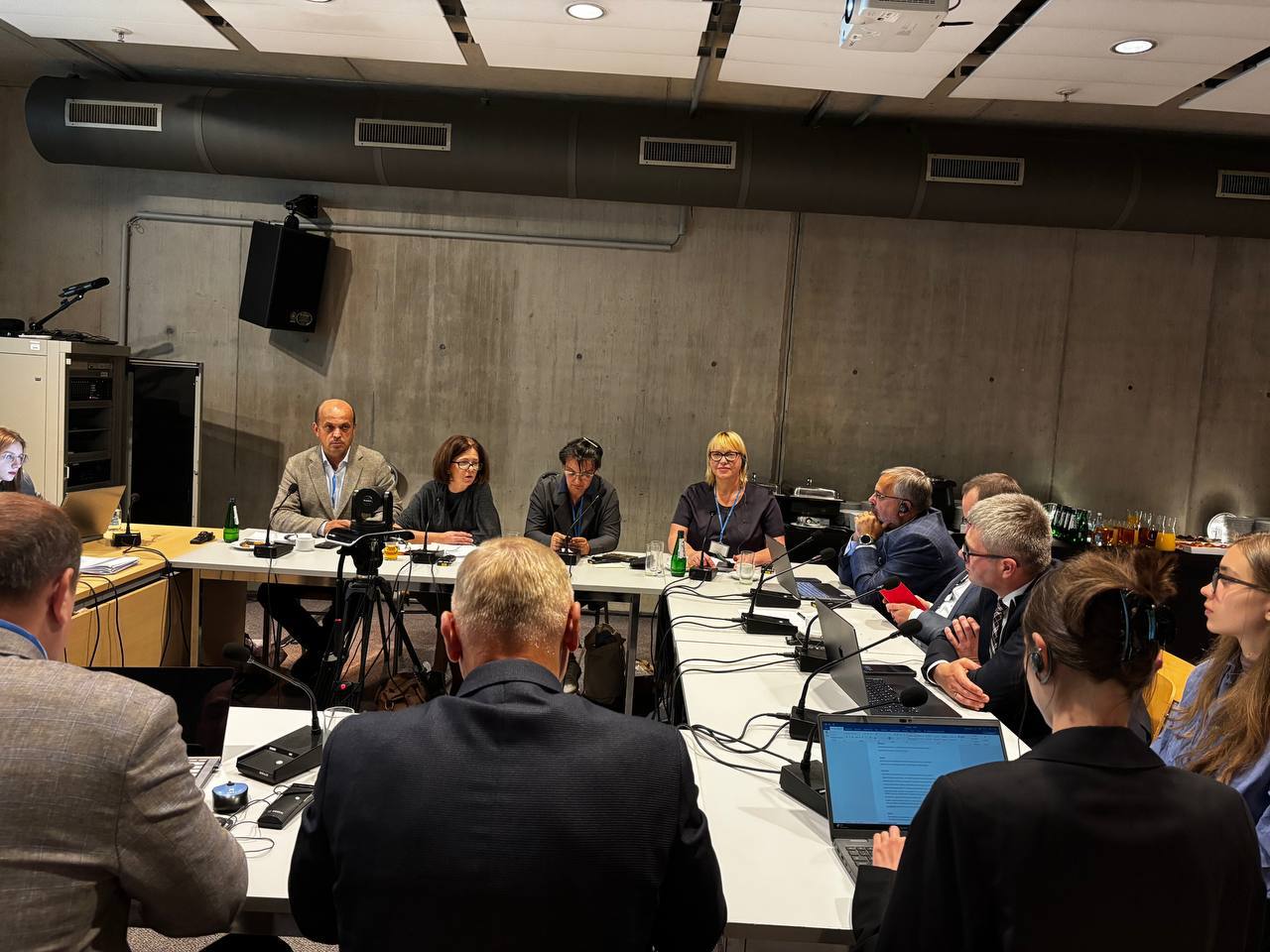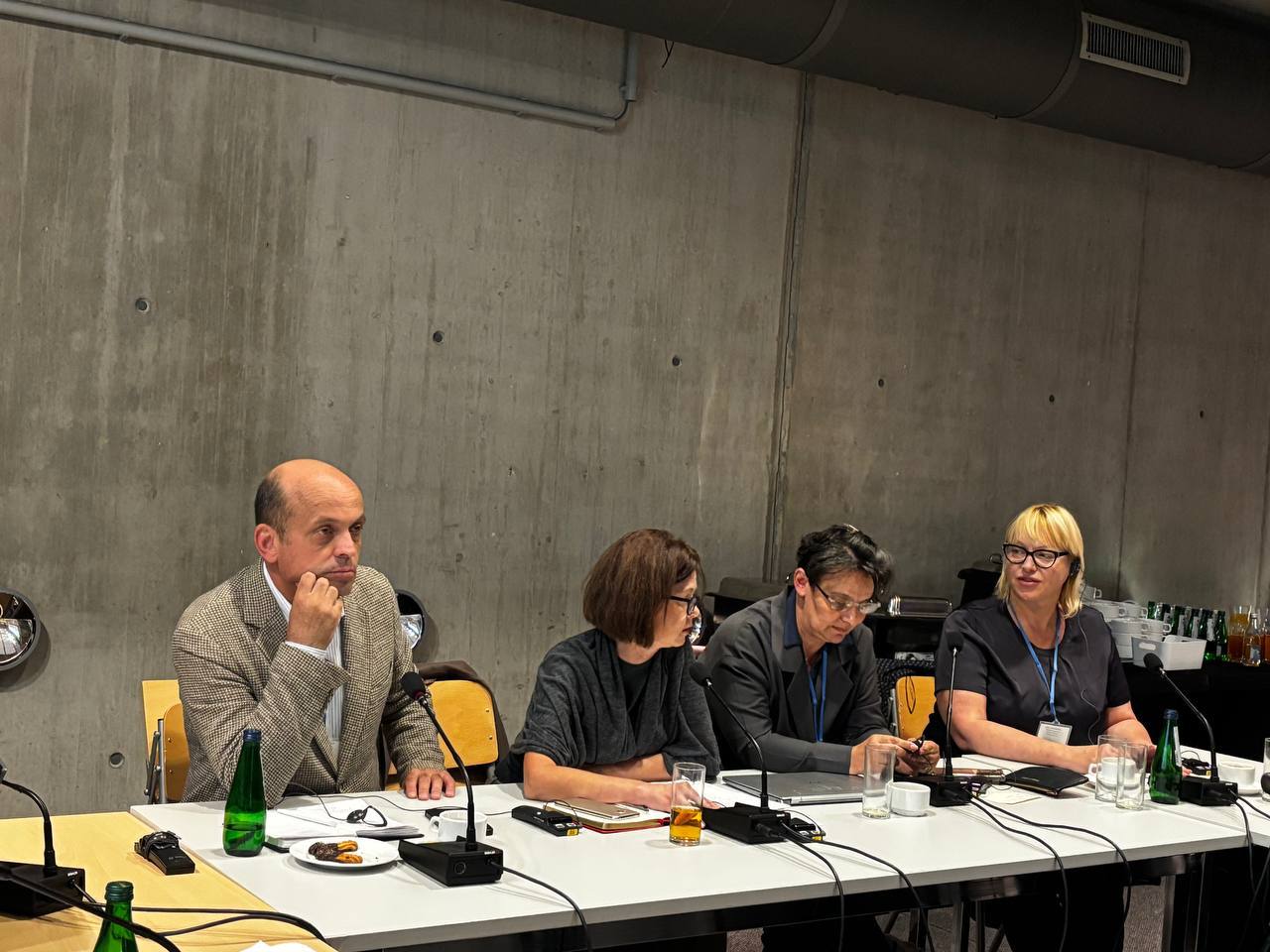6TH SEMINAR WITHIN THE FRAMEWORK OF THE JOINT POLISH–UKRAINIAN RESEARCH PROJECT

On September 24, 2025, at the University of Warsaw (Republic of Poland), the sixth seminar was held within the framework of the joint Polish–Ukrainian research project “The Impact of Types of Political System on the Quality of Functioning of Political Institutions: Polish and Ukrainian Experience and Prospects.” The event was part of thematic discussions on the impact of the legislative process and laws on political and administrative practice.
At this meeting of Polish and Ukrainian political scientists, legal scholars, and sociologists, the Institute of Political and Ethnic Studies of the National Academy of Sciences of Ukraine was represented by researchers of the Department of Political Institutions and Processes: Dr. Sc. (Political Science) Halyna Zelenko, PhD (Political Science) Rostyslav Balaban, PhD (Political Science) Nataliia Kononenko, and PhD (Political Science) Svitlana Sytnyk.
The subject of discussion was the key points of the presentation by Doctor of Law, Professor Ihor Onyshchuk (Vasyl Stefanyk Carpathian University), who in his lecture “The Quality of Legislation: Conceptual Analysis and Evaluation Criteria” focused on the interrelation between the quality of legislation, the specific features of the legislative process, and the level of efficiency of public governance. Also presented were the results of empirical research on the influence of the political system on the legislative process, which were outlined in the lecture “The Specifics of the Legislative Process as Indicators of Institutional Effectiveness” by Dr. hab., Professor of the University of Warsaw Agnieszka Dudzińska.
The discussion on the quality of legislative and regulatory procedures, as well as the effectiveness of the lawmaking process, addressed problems common to both Ukraine and Poland, namely the challenges of democratic practices and the quality of law, which limit the positive societal outcomes of implemented legislation. In examining the shortcomings of institutional mechanisms, the scholars also considered the influence of political culture on the quality of legislation—an issue of particular importance in conditions of cohabitation.
Prof. Dr. hab. Monika Florczak-Wątor outlined current trends actively debated in the Polish academic environment, in particular regarding the use of artificial intelligence for monitoring the quality of legislation, predicting the consequences of its application, and enhancing the quality of lawmaking. While recognizing the advantages offered by AI, scholars also expressed significant concerns.
More detailed information about this meeting is available at the following link:
https://ustrojwdzialaniu.uw.edu.pl/polska-cechy-procesu-legislacyjnego-jako-wskazniki-sprawnosci-instytucjonalnej-ukraina-jakosc-i-skutecznosc-ustawodawstwa-analiza-pojeciowa-i-kryteria-oceny/


